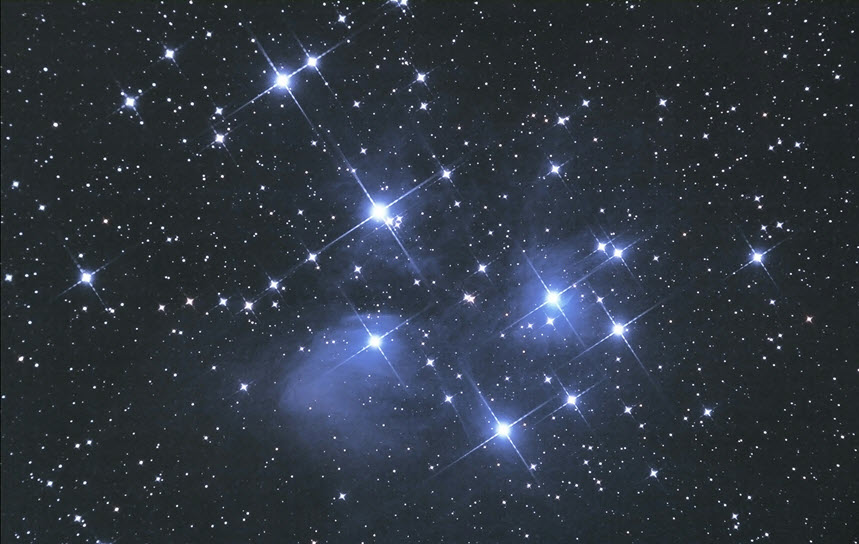Written in the Stars: Exploring the Cosmic Threads That Weave Through Our Lives
There’s something ancient and comforting in the act of looking up. Long before telescopes, satellites, and astrophysics, humans gazed at the stars and imagined stories written across the night sky. These stories became constellations, and those constellations became calendars, myths, and maps. Somewhere in that quiet, star-lit space between imagination and intuition, astrology was born, not as a science in the traditional sense, but as a language, a mirror, and for many, a guide.
The phrase “written in the stars” evokes the idea that our lives are somehow shaped, or even fated, by celestial forces beyond our understanding. And while modern skeptics may scoff, millions of people continue to turn to astrology not for hard predictions, but for a more profound sense of connection, to themselves, to each other, and to the cosmos.
But what does it really mean to believe something is written in the stars?
The Mythic Origins of Meaning
Astrology is one of humanity’s oldest symbolic systems. In ancient Mesopotamia, Babylonian astrologers meticulously charted the heavens, believing the movements of the planets mirrored events on Earth. The Greeks later fused this star-watching practice with myth, giving us the twelve signs of the zodiac, each with its own archetype and personality. Aries the Warrior. Taurus the Builder. Cancer the Nurturer. Each sign isn’t just a symbol; it’s a mythic role we may play as we journey through life.
To say something is written in the stars is to say that it participates in this larger-than-life narrative. Your birth chart, also called a natal chart, is a snapshot of the sky at the moment you were born. According to astrology, this celestial imprint offers clues about your strengths, your struggles, your desires, and your path. The Sun sign speaks to your core identity. The Moon sign whispers about your inner world. And your Rising sign colors how the world sees you. All of it, woven together, creates a uniquely cosmic fingerprint.
Fate or Free Will?
Skeptics often assume astrology is about rigid prediction: “Will I meet someone tall, dark, and mysterious next week?” But the heart of astrology isn’t about prediction; it’s about pattern recognition. Think of it like a weather forecast for the soul. Just as meteorologists use patterns in air pressure and cloud formation to suggest whether rain is likely, astrologers use planetary cycles to describe the energetic climates we’re moving through.
Are you being called inward? Challenged to take a leap? Invited to release an old story? Astrology can’t make those decisions for you, but it can help illuminate the crossroads and clarify the terrain.
Astrology thrives in that paradoxical space between fate and free will. If your chart is the script, then you are the actor. The sky may sketch out a theme: transformation, confrontation, awakening, but how you interpret and live that theme is up to you. Just as two people with the same sun sign can lead radically different lives, so too can we all choose how consciously we live the energies we’re born with.
A Mirror for the Soul
In an increasingly rational world, astrology offers something radical: mystery. It reminds us that we are part of something vast, interconnected, and alive. For many people, reading their birth chart or following the phases of the Moon is not about superstition but about reflection. What am I learning? What am I feeling? What am I being asked to evolve into?
This is why astrology endures; not because it promises certainty, but because it offers meaning. It gives shape to what feels otherwise invisible: emotional currents, soul growth, inner seasons. In this way, astrology becomes a sacred language, a mirror for the soul, a bridge between the inner and outer worlds.
The Cosmic Dance of Timing
There are moments in life when everything seems to fall into place. Doors open. People arrive. A new chapter begins. At other times, we face resistance, and plans stall. Relationships fray. Nothing makes sense. Astrologers call this cosmic timing. Known as transits and progressions, these are movements of the planets that activate or challenge parts of your natal chart.
For example, a Saturn return, that is, when Saturn returns to the same place it was when you were born, roughly every 29 years, is a rite of passage. It often marks a time of serious reevaluation, responsibility, and maturity. Similarly, a Jupiter transit might bring opportunity and expansion, while a Pluto transit can bring profound changes to any area of your life: emotional, physical, material, or psychological.
To believe that something is written in the stars is not to resign yourself to fate, but to understand that life unfolds in cycles, and each season brings its own lessons. Some are for planting. Some are for harvesting. And some are for letting go.
Reclaiming the Sky
In a modern world shaped by data and disconnection, astrology invites us to reclaim the sky as a source of meaning. It re-enchants the cosmos, not with superstition, but with story. Whether you believe in astrology literally, metaphorically, or somewhere in between, there’s power in seeing your life as part of a larger design.
Perhaps what’s written in the stars is not a rigid script, but a sacred poem, one that you co-author with the universe every time you listen inward, show up authentically, and follow the deeper rhythm of your own becoming.
So look up tonight. The stars may not hold all the answers, but they’ve been asking the right questions for thousands of years.
And maybe, just maybe, some part of you has always known the sky was speaking to you.
Customized Written Astrology Report
Copyright © | Gloria Constantin | All Rights Reserved |
Need help or have questions? Contact Me
